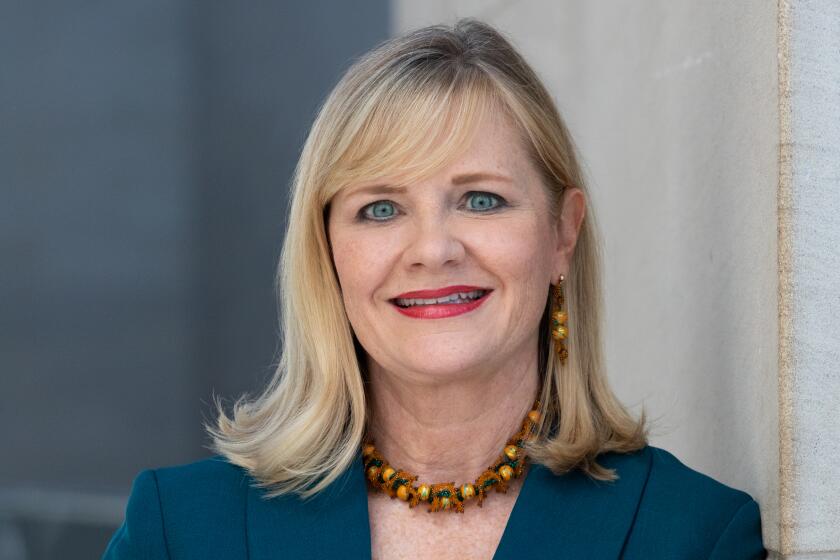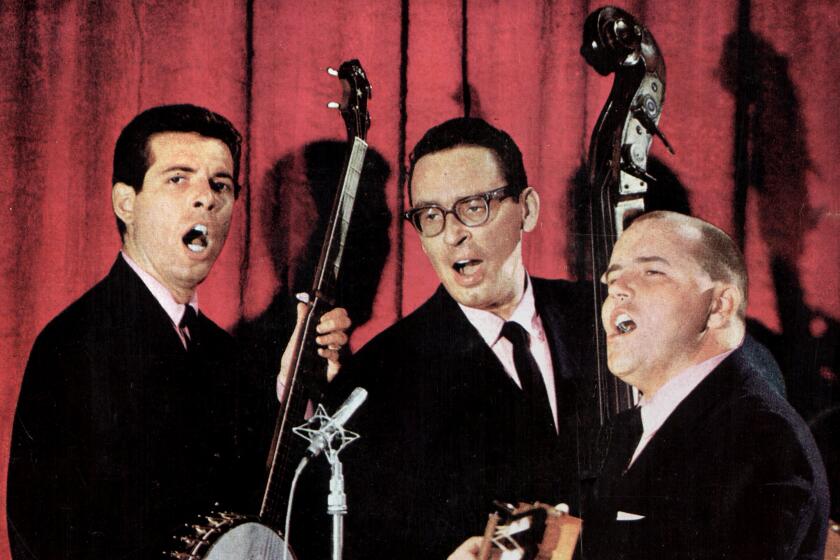Where Top Quality Meets Bottom Dollar
The irony is inescapable: While the major recording labels sweat out the creation of contemporary performing icons, trying to force-feed reluctant consumers with an endless succession of high-priced, overhyped turkeys, the same labels hedge their bets with superior material from their archives at mid-price (about $10) or even budget (which can translate to as little as $6).
A case in point is RCA’s Silver Seal budget series, which has returned to circulation the Brahms Fourth and Dvorak Eighth Symphonies brilliantly recorded more than 30 years ago and executed with stunning ensemble virtuosity by the Boston Symphony under Charles Munch’s passionately engaged leadership (61206).
Another outstanding Silver Seal re-release pairs Rachmaninoff’s swoony Second Symphony and his little-known symphonic poem “The Rock,” both with Andre Previn leading the splendid London Symphony of the mid-1960s with an acutely judged combination of expansiveness and sinew (60791).
Consider as well, on the same label, the familiar coupling of the Debussy and Ravel string quartets, in incomparably gutsy, colorful interpretations by the Guarneri Quartet in finest 1973 fettle (60909).
Sony’s wallet-pampering Essential Classics line offers what for this listener remains the ultimate pairing of Brahms’ Second and Third Symphonies, in which the Cleveland Orchestra is led with incisiveness and rhythmic flexibility by George Szell (47652). On the other hand, the Szell-Cleveland Dvorak “Slavonic Dances” (48161) exemplifies the conductor in a hectoring, teeth-clenched mood, delivering performances remarkable chiefly for their lack of both rhythmic subtlety and dynamic variety, to say nothing of joyousness.
Dvorak is, however, dramatically and affectionately served in the Juilliard Quartet’s 1968 recording of his most popular chamber work, the “American” Quartet, and the only marginally less popular Opus 81 Quintet, in a propulsive reading by pianist Rudolf Firkusny and the Juilliard that first appeared in 1977 (Essential Classics 48170).
There’s the thrilling, sometimes raw sound of a live orchestra, rather than a slick electronic fantasy, in reissues from the 1960s of the six Tchaikovsky symphonies, magnificently executed by the Vienna Philharmonic under Lorin Maazel, who leads with commendable vitality and nary a hint of the navel gazing that has afflicted much of his more recent work (London 430 787, four budget CDs).
A point worth noting about all the aforementioned releases is their generous playing times, each offering at least an hour of music, with the Munch coupling and both Szells topping out at 75 minutes each. Furthermore, and this is meaningful for first-time buyers, Sony supplies helpful program notes, a policy RCA-Silver Seal, which provides no annotations at all, would do well to emulate.
Naxos is a budget label whose wide-ranging catalogue consists entirely of newly recorded material, performed for the most part by worthy, non-stellar artists, such as Jeno Jando, a 40-year-old Hungarian pianist who was the hero of last year’s knockout program of Liszt knucklebusters on the LaserLight label, another penny-pincher’s delight.
His agenda for Naxos includes recording all the Beethoven sonatas, among whose first releases at least one is unhesitatingly recommended, that encompassing the three works of Opus 2, delivered with rhythmic snap and a strong awareness of the music’s sharp-edged, Haydnesque affinities (550150).
Jando is likewise a powerful presence partnering an excellent cellist, Csaba Onczay, in cleareyed, tautly dramatic, altogether satisfying presentations of Beethoven’s most imposing works for this combination, the single sonata of Opus 69 and the two of Opus 102 (550478).
Another attractive Naxos release is a program of Scandinavian pieces for string orchestra, including some exquisitely schmaltzy miniatures by Grieg and Sibelius’ killingly lovely “Rakastava,” all gracefully delivered by the Bratislava-based Capella Istropolitana under the direction of Adrian Leaper (550330).
At these prices--$5 or $6 a CD--Naxos’ releases are naturals for filling gaps, as with a CD nominally devoted to two big works by Sibelius, his Fifth Symphony and “En Saga,” in decent-enough performances by Leaper and the Slovak Philharmonic (550200). But the real value of the disc lies in a rarity from the same forces: Sibelius’ “Belshazzar’s Feast,” 12 hauntingly imaginative minutes of Nordic Orientalia.
More to Read
The biggest entertainment stories
Get our big stories about Hollywood, film, television, music, arts, culture and more right in your inbox as soon as they publish.
You may occasionally receive promotional content from the Los Angeles Times.






